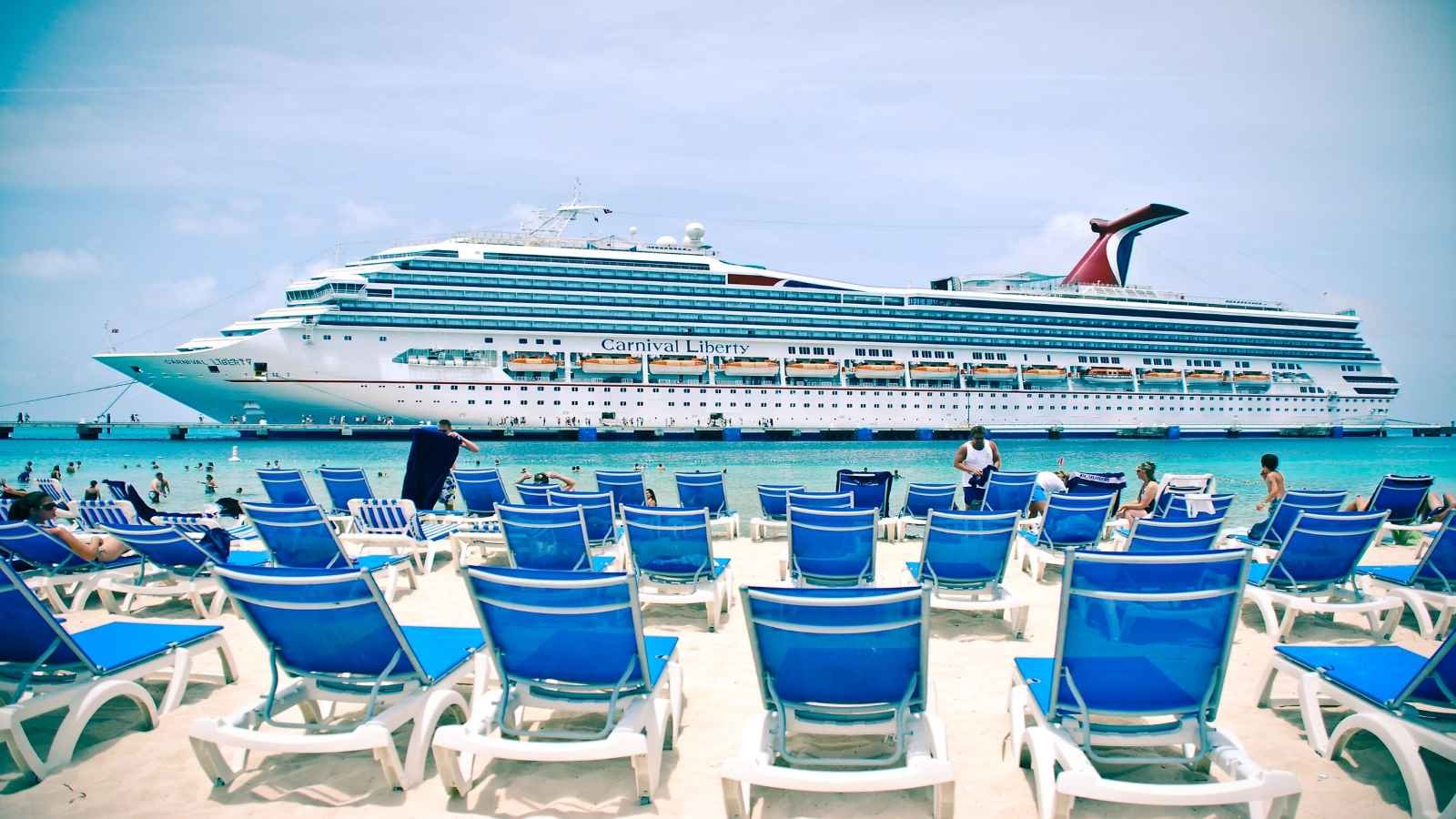Growing fears of a recession are weighing on Carnival (NYSE:CCL) stock.
In the last four weeks, CCL stock has fallen 14%. The company’s shares are now trading below $10 and near a 52-week low of $8.10. The last time Carnival’s stock was this low was in 1993. The current drop is particularly concerning given that it is coming during the peak summer travel season.
Mounting fears that the global economy is falling into a recession appear to be overriding the fact that the cruise line company is emerging from the pandemic that devastated its operations.
| Ticker | Company | Recent Price |
| CCL | Carnival | $8.52 |
Bulging Debt
While most of the restrictions that were imposed on cruise ships during the pandemic have now been lifted, Carnival is still contending with the aftermath of the Covid-19 crisis, mostly in the form of a bulging debt load that exceeds $35 billion. Getting out from under that massive debt burden will not be easy, especially as Carnival struggles to get its operations back to pre-pandemic levels.
The occupancy level on its cruise ships has been improving, but at a slower rate than analysts would like. The company just reported fiscal second quarter results that showed the room occupancy rate on its ships was at 69% during the period. While that’s an improvement over the 54% occupancy rate reported in fiscal Q1, the latest number missed Wall Street forecasts for a 72% room occupancy rate. The rate was at 100% prior to Covid-19.
While Carnival’s Q2 revenue rose nearly 50% from the previous quarter to $2.4 billion, it also fell short of analyst forecasts for $2.8 billion in revenue. The company’s earnings-per-share loss was steeper than anticipated at -$1.61 compared to a loss of -$1.18 that Wall Street had penciled in.
Carnival is struggling to recover from the global pandemic that left its cruise ships stuck in docks around the world and caused the company to lose more than $10 billion. As it tries to manage its crushing debt load, the cruise operator is also contending with high fuel costs, a worker shortage and waning tourism due to inflation and the rising interest rates used to lower it.
Analyst Call
As if the current environment isn’t difficult enough, Carnival took a big hit on June 29 when respected investment bank Morgan Stanley issued a note to clients where it outlined a scenario in which CCL stock could fall to $0. Morgan Stanley analyst Jamie Rollo lowered his price target on Carnival stock to $7 and warned investors that another demand shock could send the cruise line operator’s shares to zero. The strongly worded note immediately sent Carnival’s share price down 14% and has contributed to the continued selloff during early July.
Rollo wrote: “If the high yield market closes, and/or if there is a demand shock that causes trip cancellations or weak bookings (and hence customer deposit outflows), liquidity could quickly shrink … Even then, leverage looks unsustainably high … with net debt remaining >$30bn for the foreseeable future, nearly triple its pre-Covid level. We think this needs to come down … to ~$20bn or so, which implies a ~$12bn equity raise. This is similar to CCL’s market cap, so could require a material, and therefore likely very dilutive, discount.”
Rollo also reduced his revenue forecast for Carnival in the second half of this year by 15%, citing “weaker than expected occupancies, weakening pricing, elevated unit costs, and higher fuel costs.” The dramatic call from Morgan Stanley generated plenty of media headlines and further hurt CCL stock.
However, Morgan Stanley’s views and new price target seem out of step with other analysts who cover Carnival. Among 19 professionals who analyze Carnival and its financial performance, the median price target on the stock is currently $12.50, implying 46% upside from the current share price. Morgan Stanley’s $7 price prediction is the lowest among analysts.
Stay Away From CCL Stock
Carnival could right its own ship in time and return to its pre-pandemic strength. However, the company continues to operate in rough seas as high fuel costs and declining consumer spending on discretionary items such as travel impact its operations. Add in the crushing debt load, continued financial losses and negative analyst report from Morgan Stanley, and Carnival faces a tidal wave of challenges right now.
As such, investors should remain on shore and let Carnival continue to sink. CCL stock is not a buy.
On the date of publication, Joel Baglole held a long position in MS. The opinions expressed in this article are those of the writer, subject to the InvestorPlace.com Publishing Guidelines.
